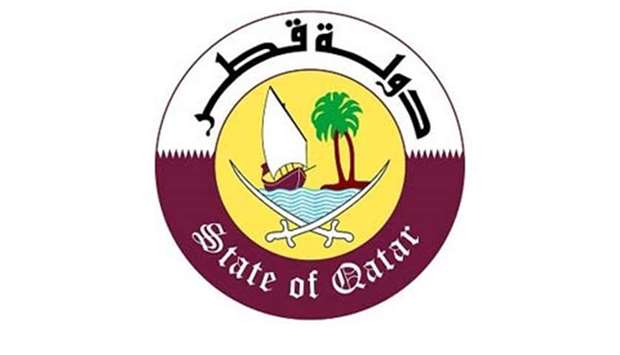Qatar renewed its calls for a nuclear-free Middle East, stressing that the establishment of nuclear-free zones is a key step to boost non-proliferation system and achieve a full nuclear disarmament, and that the establishment of a nuclear weapons-free zone in the Middle East is a common goal for the peoples of the region and the entire international community.
This came in Qatar's statement delivered by HE Acting Director of the Department of International Organisations at the Ministry of Foreign Affairs Ali Khalfan al-Mansouri before the Second Committee of the Tenth Review Conference of the Parties to the Treaty on the Non-Proliferation of Nuclear Weapons, which runs from Aug 1 to 26, with a focus on the regional issues, including with respect to the Middle East and implementation of the 1995 Middle East Resolution.
Over the past decades, five nuclear weapon-free zones have been established that include the commitment of the signatories not to possess nuclear weapons, and to sign comprehensive safeguards agreements with the agency (International Atomic Energy Agency), said al-Mansouri, noting that these zones contributed to enhancing stability in the regions where they were established, and also contributed to bringing the treaty closer to the ultimate goal of a world free of nuclear weapons.
Al-Mansouri voiced Qatar's regret that the Middle East region remained far from the establishment of a nuke-free region owing to the intransigence of Israel, which has not acceded to the Treaty on the Non-Proliferation of Nuclear Weapons (NPT), and rejected to subject its nuclear facilities to the International Atomic Energy Agency safeguards system, and seeks to obstruct any serious preliminary negotiations to achieve the goal of establishing the region.
He reiterated that the goal of establishing a nuke-free region in the Middle East is a common goal for the peoples of the region and the entire international community, and it is a collective responsibility under international resolutions and the outcomes of the 1995, 2010 and 2015 review conferences. He indicated that the decision of the 1995 Review Conference on the Middle East is an integral part of the indefinite extension of the treaty, and will remain in effect until its implementation and achievement of its objectives.
Al-Mansouri warned that the delay in establishing a nuke-free zone bears consequences that threaten international and regional peace and security, expressing Qatar's aspirations that the signatories to the treaty, particularly the countries sponsoring the Middle East resolution reached at the 1995 conference, would translate their responsibilities into taking practical steps to ensure an early establishment of the zone.
He further stressed the need for the United Nations (UN) and the UN Secretary-General in person to play their roles in seeking to establish the zone, and called on the Security Council, by virtue of its responsibilities in maintaining international peace and security, and under its resolutions, specifically Resolutions 487 (1981) and 687 (1991) to contribute to the efforts to establish the zone.
"Establishing the region is a collective responsibility imposed by international documents and resolutions, and that the continuation of the current stalemate is a matter that exacerbates the instability in the region, and detracts from the credibility of the treaty and the decisions of its review conferences," al-Mansouri said, calling on the Tenth Conference to be back on track, and take actual steps to achieve progress towards the establishment of the zone.
He reiterated that the accession of Israel to the NPT and subjecting its nuclear facilities to the safeguards system paves the way for the establishment of the zone, and will boost the credibility of the treaty, bring it closer to universality, and speed up the implementation the goal of nuclear disarmament goal. Al-Mansouri also expressed Qatar's aspiration that the Final Document of the Tenth Conference would include practical steps based on the 1995 Middle East Resolution, and the decisions of the 2010 and 2015 Review Conferences, expressing Qatar's willingness to launch consultations with the rest of the parties to reach the appropriate formulation.

